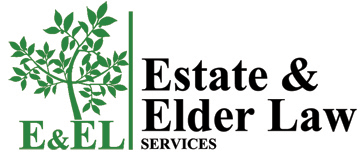Blog
Latest News
States with the Best (and Worse) Elder-Abuse Protections 2024
A recent article compared all 51 states and D.C. for reporting, investigating and acting upon abuse of the elderly. That article is found below. Several experts provide insight on Elder Abuse and reporting.
Where does Delaware stand? Forty-six out of the fifty-one. At the bottom? California, which recently made all its residents eligible for Medicaid without regard to the amount of resources one might have.
Your Estate Plan is More Than Your Will: The Importance of the Annual Review Your Estate Plan is More Than Your Will
Ask anyone the first word that comes to mind when they hear the term “estate plan.” The answer is likely “Will.” But your estate plan is much more than your Will. Your assets dictate what your estate plan documents are or should be.
How Medicaid Penalizes Gifts: The Rules
Prior gifts harm Medicaid applicants by delaying when Medicaid starts. The delay is directly linked to the total gift value over a five-year period. This delay significantly harms persons needing care now. We see this time and again. Below we explain the basic rules on how Medicaid penalizes gifts.
Social Security overpayments: Tips to prevent them
If you receive Social Security retirement benefits, one of the best ways to prevent overpayments is to check the earnings history Social Security has on record for you. You can do this before you retire.
Social Security Ramps Up Disability Overpayment Efforts
The Social Security Administration (SSA) is trying to reclaim billions of dollars from many of the nation’s poorest and most vulnerable — payments it sent them but now says they never should have received. During the 2022 fiscal year, the agency clawed back $4.7 billion of overpayments, while another $21.6 billion remained outstanding, according to a report by SSA’s inspector general. One consequence is a costly collection effort...
Big Win for Disability Advocates in Health Equity Research
One of our core missions is to provide legal services to persons with disabilities and their families in estate and long-term care planning. A great many of our clients have special needs or have a loved one who does.
IRS Delays SECURE 2.0 Roth Requirement for Catch-Up Contributions For High Earners Until 2026
This article describes another step in our country’s laborious task of implementing the SECURE 2.0 Act of 2022, which, together with its predecessor SECURE Act of 2019, is making major changes regarding retirement accounts such as 401(k) plans, Individual Retirement Accounts, and governmental 457(b) plans.
A Dream Come True: I Am a Certified Elder Law Attorney!*
I am thrilled to share that I have earned the designation of Certified Elder Law Attorney from the National Elder Law Foundation! This a major accomplishment requiring Herculean study over the course of six months, taking me away from my family, a grueling day-long exam in March that felt more painful (is that possible?) than the State of Delaware Bar Exam I took 23 years ago, waiting months to learn if I passed the exam, finding out I passed (hooray!), and then completing and submitting a daunting application in early July, which required me to show I completed at least 60 elder law matters across 12 substantive areas in the last three years, 45 hours of continuing legal education, and more than 5 peer references from esteemed elder law and other attorneys familiar with my work. The last week of July I received the word: I made it! I am now a Certified Elder Law Attorney!
Why You Need a Medigap Policy and How To Find One
A common mistake among Medicare recipients is to believe that Medicare is the only the health insurance they need. This belief is false and dangerous. For most expenses, Medicare only pays a portion. This creates “gaps” in medical coverage where the Medicare beneficiary must pay the other portion of their expenses. These gaps add up quickly, and can cripple the finances of a senior citizen who is struggling to make ends meet or, as is often the case, has the money to pay, but is saving that money in case other big expenses arise in the future, such as long-term care in a nursing home, assisted living facility, or the home. The senior and his or her family is left scratching their heads as to how the senior could be hit with such a big medical bill, for example, after a rehabilitation facility stay following hospitalization, when they thought the senior was fully covered by Medicare.
When Does Medicare Pay for In-Home Care?
We’ve all seen it.
Neighbor A suffers a medical event, spends multiple days in the hospital and gets discharged to home. Medicare pays for a team of professionals to come out and care for Neighbor A in the home, including, for example, a licensed practical nurse, a physical therapist, a speech therapist, and an occupational therapist. Medicare also pays for home health aides who help with daily activities in the home including bathing and dressing.
Latest Announcement From The IRS On Free Online Filing
Many of us use professionals to help us file our tax returns. But many of our clients do not need that expertise as we are recently retired, disability income is modest or our children are students with modest income. Online tax filing services charge fees. They may entice us with “free” federal tax filings, but then switch to charging for the state or local tax return.
Pass-Through Taxation: What You Need to Know
Most US businesses have a pass-through taxation structure: they are not subject to corporate tax. Instead, they have their income “pass through” to their owners to be taxed on their individual income tax returns.
Recent Congressional Developments on Improving Access to Home- and Community-Based Services:
The caregiver crisis in America is multifaceted and deep. While under federal and state law, older adults and people with disabilities who meet medical and financial criteria are eligible for Medicaid long-term care services and supports (Long-Term Care Medicaid (“LTSS”)), states, and even regions within states, vary as to the settings in which these vulnerable persons receive LTSS.
Change in Nursing Homes Population and Economics
It is well known and as set forth in a recent article from the Center for Medicare Advocacy that nursing homes have significantly reduced populations. Before the pandemic, nursing home populations were declining. Plante Moran, an accounting and business consulting firm, reports a 32% decline in utilization of nursing homes from 2015 to 2022.[1] It writes that it does “not expect utilization [of nursing homes] to recover to pre-pandemic levels.” Plante Moran suggests that “nursing home rightsizing” is occurring and describes older people choosing independent living, assisted living, memory care, continuing care retirement communities, and affordable senior housing instead of nursing homes.
Relief From Required Minimum Distributions for IRAs for 2023: But Delay May Not Be the Best for You
The IRS gave notice in Notice 2023-23 to financial institutions on reporting required minimum distributions (RMDs) for 2023 after the amendment to section 401(a)(9) of the Internal Revenue Code made by the Consolidated Appropriations Act, 2023, (the Act).
Long Term Care per U.S. Department of Health and Human Services
The U.S. Department of Health and Human Services states that almost 70% of folks aged 65 and over will need some type of long-term care in their remaining lifetime. What will this care look like? How will this care be paid for? How will the senior’s family be affected? Answering these questions and creating a plan is a major part of elder law.
Three-Quarters of Middle-Class Seniors Priced Out of Assisted Living by 2033
In general, middle-income seniors have income and assets that make them less likely to qualify for Medicaid. At the same time, they may not have adequate resources to pay for the rising costs of housing and care options they need.
SECURE 2.0: What It Means for You
In 2019 the SECURE (“Setting Every Community Up for Retirement Enhancement”) Act made the first major changes to the U.S. retirement system in over a decade. Shortly after the SECURE Act was signed into law, the U.S. House and Senate began working on follow-up legislation to expand retirement plan access to more workers and make other changes. Three years later that follow-up legislation is upon us, referred to as “SECURE 2.0”, signed into law by the President on December 29, 2022 after passage by the Senate on December 22 and the House on December 23. Following are some key points that have meaning for our clients.
Monitoring Your Parent or Spouse in a Nursing Home: What is the Law?
When your loved one enters a nursing home or assisted living center, you expect them to be safe. You expect them to get the care they need in a peaceful environment. But do you ever wonder what happens when you aren't there? Do you wonder if their care declines when no one is looking? Especially in light of the visiting restrictions and the inevitable increased stress of staff that COVID-19 has placed upon residential care facilities, do you worry about your loved one's care?
Know What You Have: The Importance of Understanding Your Investments
Too often potential clients come to see us for help in preparing their estate plan and have little to no understanding of details about their investments. Typically, they know the bank where the investment is held. But often unknown or at least fuzzy to them are:


















